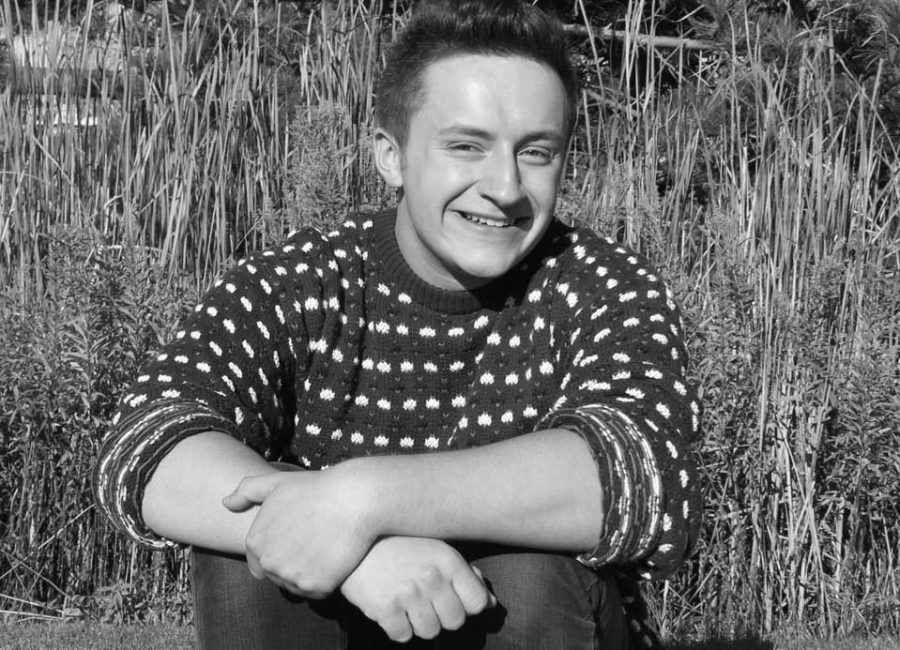EIC column: Government shooting away mental health concerns
May 21, 2014
Here is a question: how many people have to get shot before the nation starts critically considering the government’s system of dealing with mental health concerns? It is easy to chalk up each of the recent mass shootings to gun control problems, or people who were just crazy. The serious concern, however, should be focused on the governmental structure’s ridiculous lack of consideration for and enforcement of solutions for mental health care problems.
In a compiled list of mass shootings, Mother Jones calculated 67 occurrences since 1982 in the United States. 42 of these 67 shooters had prior signs of mental illness. There have been 12 of these mass shootings since 2012. The Navy Yard shooting in Washington D.C. is the most recent to have garnered national attention. It resulted in 13 fatalities and eight injuries, committed by 34-year-old military veteran Aaron Alexis.
Check out Alexis, for a minute. He was reported to have several mental breakdowns prior to his shooting, even asking to receive treatment and diagnosed with mental health problems that need treatment. He received some, but it was sparse and incomplete. There were clear signs of his mental instability, however there was an utter lack of government pull through in treating this mental instability.
“[Alexis] said he was hearing voices; they were coming through the walls, the floor, the ceiling of his hotel room; that he’d changed hotels three times. He said he was being followed by people. They were sending vibrations into his body with some sort of microwave machine, and tried to get him to stop from sleeping. So this worried the officers. And the police report says they contacted police at the Naval Station Newport. But we don’t know how or whether naval investigators followed up, or what they could have done. So that was just six weeks ago,” said Joe Shapiro, NPR news reporter.
Despite the clear concern for Alexis, and the questioning of his mental state, he never received court-mandated treatment, and he was treated at two hospitals in Virginia only after seeking out mental treatment. Even then, he did not receive major medical care. Perhaps if we had a stronger mental health treatment system in the government, there may be 13 people here today that are forever gone.
The federal government, in fact, cannot mandate mental health care. Most states have some form of an involuntary treatment program, but there is no federal system in place. If the federal government were to implement an involuntary treatment plan, and enforce it, it is likely we could have prevented many mass shootings- and other crimes, for that matter. Too expensive? Actually, it’s not.
“Investigators discovered that treatment costs for a group of frequently hospitalized patients declined 50 percent in New York City after the first year of an outpatient commitment program, and dropped another 13 percent the second year,” said Rick Nauert, senior news editor at Psych Central.
This is not to say that every person with a mental disease is going to commit a mass shooting, or that every person with a mental disease is going to cause anything, at all. What some form of federal outpatient commitment program would do is potentially prevent those who would, and aid those who would not, anyway. It is also painfully apparent that many of these mass shooters behaved in such a clear manner that something was amiss in their mental health, and that it could potentially escalate and become dangerous. Take another example.
“In 2007, Virginia Tech student Seung-Hui Cho was behaving so irrationally that a court ordered him to seek mental health care. The order was never carried out. Cho killed himself and 32 others,” said 60 Minutes correspondent Steve Kroft.
These stories of clear mental health problem unjustifiably ignored by the federal government system just play on “repeat” for almost every mass shooter in the past 12 years. The most difficult part of it all, it was almost entirely treatable and preventable.
“Every person I’ve taken care of, and I’ve taken care of several hundred of these people, had a very good reason for doing what looked to be crazy behavior. But in their mind, it wasn’t crazy behavior. It was in response to something that was very logical, that their voices were telling them, or that their delusions were telling them,” said renowned psychiatrist and mental health expert Dr. E. Fuller Torrey. “About half of these mass killings are being done by people with severe mental illness, mostly schizophrenia. And if they were being treated, they would’ve been preventable.”
The point of all this is that the federal government needs to have some way to help these people before major traumatic instances occur. Their is such a lack of concern for the research that has proven time and time again the validity of this idea, and there is a lack of concern for all the help it would provide to so many people. It is about time that people start working towards changing the government to have some form of mandated mental health care system, to make a better, healthier, happier, richer and more alive society.









Sydney Spreck • May 31, 2014 at 10:22 am
This is a great article because it addresses a serious current issue in the United States, one that everyone is talking about. With each new shooting there is more pressure on the government to do something, and I agree that an emphasis on aid to the mentally ill would be a good first step. The government cannot keep ignoring this issue or it will only get worse.